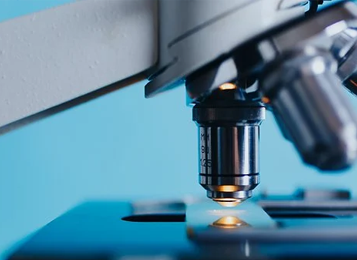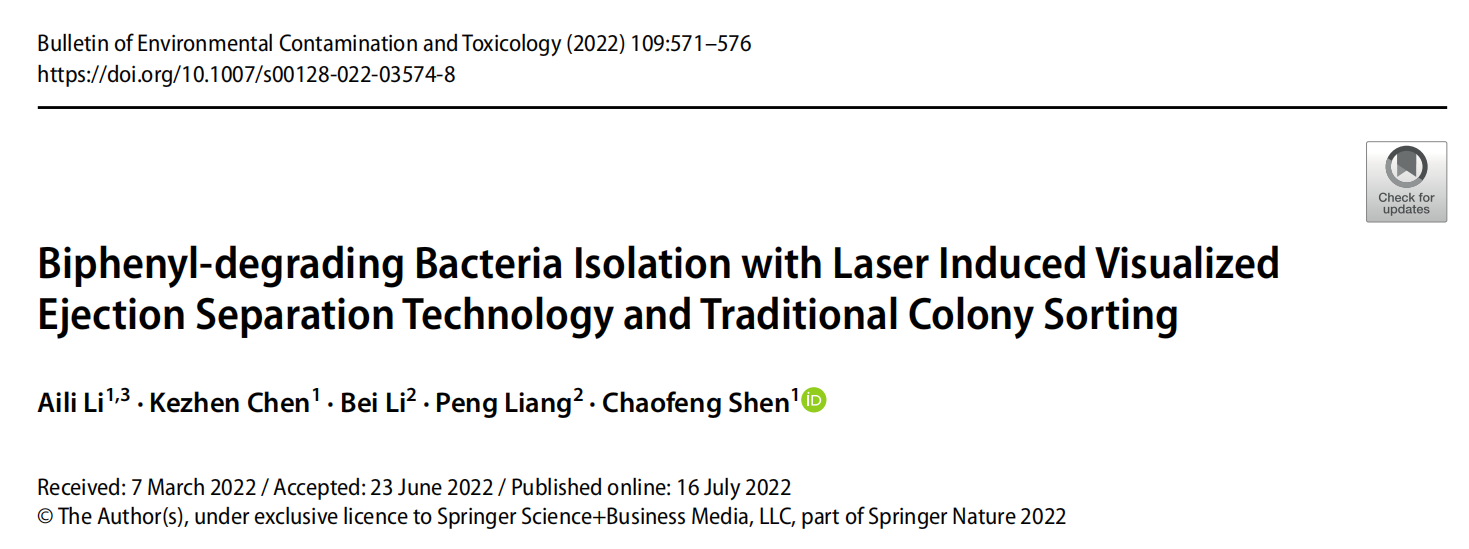

- Application Article
- Download
Hooke College

- About Us
- Team
- R & D and production
- Join Us
- Contact Us
- Qualification honor



On July 16, 2022, the team of Professor Chaofeng Shen from the School of Environment and Resources of Zhejiang University applied HOOKE INSTRUMENTS's core product - PRECI SCS, in Bulletin of Environmental and Toxicology. The article was published under the title "Biphenyl-degrading Bacteria Isolation with Laser Induced Visualized Ejection Separation Technology and Traditional Colony Sorting". The first author of the article is Dr. Aili Li. In this work, biphenyl was used as carbon source to enrich microorganisms from polychlorinated biphenyls (PCBs)-contaminated paddy soil samples, and the taxonomic structures in both of the soil samples and the fourth-generation enrichments were examined with high-throughput sequencing. Single cells were isolated from the enrichments via single cell sorting technology named Laser Induced Visualized Ejection Separation Technology (LIVEST) and also traditional single colony sorting.it was found that some strains belonging to genera Macrococcus, Aerococcus and Metabacillus are capable in degrading biphenyl, which have not been reported yet.

In this work, biphenyl was used as carbon source to enrich microorganisms from polychlorinated biphenyls (PCBs)-contaminated paddy soil samples, and the taxonomic structures in both of the soil samples and the fourth-generation enrichments were examined with high-throughput sequencing. Single cells were isolated from the enrichments via single cell sorting technology named Laser Induced Visualized Ejection Separation Technology (LIVEST) and also traditional single colony sorting, and the genera of the isolates were identified using 16S rRNA sequencing. The results from high-throughput sequencing present that enrichment from generation to generation can considerably change the microbial community. Comparing the two sorting methods, the LIVEST is more time-saving and cell-targeted for microbial resource exploration. Based on the further verification of biphenyl degradation, it was found that some strains belonging to genera Macrococcus, Aerococcus and Metabacillus are capable in degrading biphenyl, which have not been reported yet.
The paper links:

+86-431-81077008
+86-571-86972756

Building 3, Photoelectric Information Industrial Park, No.7691 Ziyou Road, Changchun, Jilin, P.R.C
F2006, 2nd Floor,South Building, No. 368 Liuhe Road, Binjiang District, Hangzhou, Zhejiang,P.R.C

sales@hooke-instruments.com

COPYRIGHT©2022 HOOKE INSTRUMENTS LTD.ALL RIGHTS RESERVED 吉ICP备18001354号-1